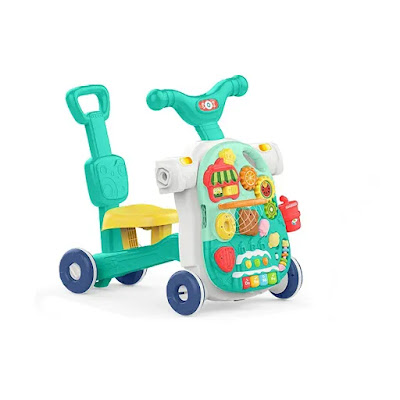Introduction:
Baby walkers are often seen as a convenient way to help infants develop their walking skills. However, they have also been a topic of controversy due to their potential impact on the development of the baby. In this blog post, we will explore the impact of baby walkers on infant development, and provide you with all the information you need to make an informed decision.What are baby walkers?
Baby walkers are a type of device designed to help infants learn how to walk. They typically consist of a frame with wheels and a seat that allows the baby to sit and move around. Baby walkers are usually used for infants between the ages of 4 and 16 months.What are the benefits of using baby walkers?
Baby walkers are often touted as a convenient way to help infants develop their walking skills. They can provide support and stability for the baby, allowing them to move around and explore their environment more easily. Additionally, baby walkers can be a source of entertainment for the baby, keeping them occupied and happy.Read the advantages and disadvantages of baby walkers.
What are the risks of using baby walkers?
While baby walkers may seem like a useful tool for parents, they can also pose several risks to the development of the baby. One of the biggest risks is the potential for injury. Baby walkers can tip over, causing the baby to fall and injure themselves. Additionally, the wheels of the walker can cause the baby to move too quickly, which can lead to accidents and falls.Another risk associated with baby walkers is the potential impact on the development of the baby. Some studies have suggested that the prolonged use of baby walkers can delay the development of certain motor skills, such as crawling and walking. This is because the baby is not using their own muscles to support itself, which can lead to weaker muscles and delayed development.
What are the alternatives to baby walkers?
If you are concerned about the risks associated with baby walkers, there are several alternatives that you can consider. For example, you can encourage your baby to crawl, which can help to develop their motor skills and strengthen their muscles. You can also use astationary activity center, which can provide a safe and secure environment for your baby to play and explore.
Conclusion:
In conclusion, while baby walkers may seem like a convenient way to help infants develop their walking skills, they can also pose several risks to the development of the baby. If you choose to use a baby walker, it is important to be aware of the potential risks and to take steps to minimize them. However, there are also several alternatives to baby walkers that you can consider. Ultimately, the decision of whether or not to use a baby walker is up to you as a parent and should be based on what you feel is best for your child's development.Don't forget to visit WebTechTips for more informative content related to tech, the web, and gaming.






0 Comments